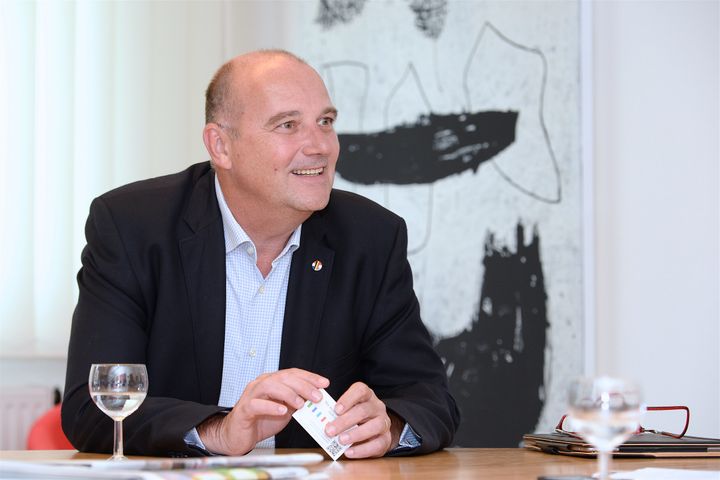 Can Benelux Close the Loop?
Can Benelux Close the Loop?(Yicai Global) Oct. 27 -- When you purchase an electrical device in Europe today, the label tells you exactly how much energy it will consume. Nothing however indicates whether or not it can be repaired; all the consumer knows is that European law requires that it be guaranteed for two years.
The Benelux Union wants to change that. On June 30 2017, it launched a study to define criteria for product repairability and to quantify or evaluate how difficult repairs might be. With this measure, Belgium, the Netherlands and Luxembourg are taking another step to promote a circular economy.
"We think that the circular economy should be a political priority," said Alain de Muyser, Deputy Secretary General of the Benelux College. He is under no illusion that actions taken by the three member states—which represent a market of some 30 million people—could have an impact comparable those taken by the European Union, with its population of 508 million. "But the way Benelux works is to be a laboratory for Europe," he said. "If we join forces and, as a trio, have the support of our neighboring countries, we can have a bigger impact on Europe than any one of us could have alone."
Since 2012, the Benelux countries have campaigned to raise awareness of sustainable development and in 2015, they began to actively endorse the circular economy. At the time, a task force responsible for waste treatment recommended the end of waste—at least on paper. The measure was adopted, although it has never been implemented. "What was important was that the three member states agreed upon the necessity to act," said Muyser. And there has been some movement: A recommendation to change the status of construction and demolition waste to non-waste is scheduled for this year, and in 2018, the Belgium will turn towards tackling the issue of food waste.
"We need large-scale changes in mentalities and public opinion," said Muyser. The Benelux Union also plans to conduct educational programs and to exchange best practices among member countries. Still, no one is expecting consensus to be easy in a region where environmental policies sometimes vary significantly. To cite but one example, the Netherlands requires refundable deposits on plastic bottles; in Belgium and Luxembourg, they are simply tossed into recycling bins.
The Benelux Union is nevertheless determined to spearhead EU progress toward a circular economy. Efforts include sensitizing member states and promoting initiatives that, later on, are likely to get a positive reaction from the biggest EU member countries and that could even make it onto the European Commission agenda.
Repairability is one of these; another is challenging planned obsolescence. By forcing producers to extend warranty periods, they intend de facto to extend repairability. Finally, they are closely following the progress of environmentally friendly product design that respects the principles of the circular economy. "We could eventually set up an inventory of reusable products," said Muyser.
The Benelux countries are far from making the circular economy a reality, but they remain optimistic. After all, the Benelux Union was born in 1944 as a customs union; in 1957, its member states became founding members of European Union; today they are among 28 EU countries with a shared a vision for preserving peace and free trade. "I have always said that the bigger Europe gets, the more intra-European regionalism becomes necessary," said Muyser. "Everything that is close to us brings us closer to one another."
The circular economy may just be the solution to many of the environmental problems that are close to all Benelux citizens—and to their European neighbors as well.
